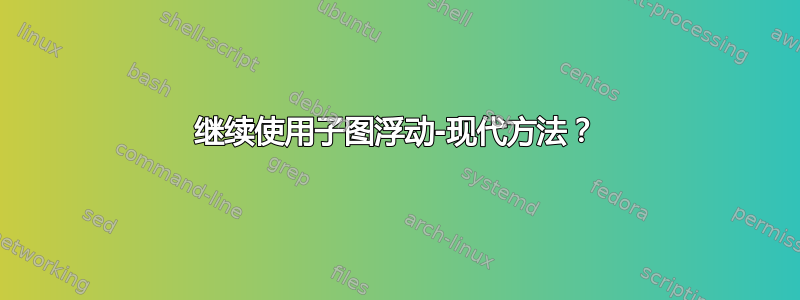
我经常使用如下子图
\begin{figure}[htbp]
\begin{subfigure}[t]{0.48\textwidth}
\includegraphics[width=\textwidth]{plots/P0.png}
\caption{}
\label{fig:P0}
\end{subfigure}
\hfill
\begin{subfigure}[t]{0.48\textwidth}
\includegraphics[width=\textwidth]{plots/C0.png}
\caption{}
\label{fig:C0}
\end{subfigure}
\\
\begin{subfigure}[t]{0.48\textwidth}
\includegraphics[width=\textwidth]{plots/P1.png}
\caption{}
\label{fig:P1}
\end{subfigure}
\hfill
\begin{subfigure}[t]{0.48\textwidth}
\includegraphics[width=\textwidth]{plots/C1.png}
\caption{}
\label{fig:C1}
\end{subfigure}
\caption[]{}
\label{fig:example}
\end{figure}
但我在 tex.stackexchange 上的一条评论中看到,该subfigure环境已经贬值且过时(多年了)。所以我想知道现代的子图方法是什么样的?理想情况下,子图应该跨越分页符,即与连续浮动兼容。我总是很高兴学习新东西,让我的文档看起来更好。:) 提前谢谢您。


